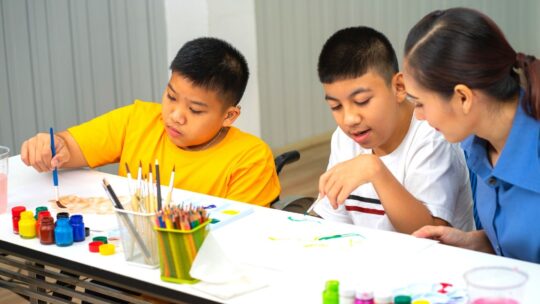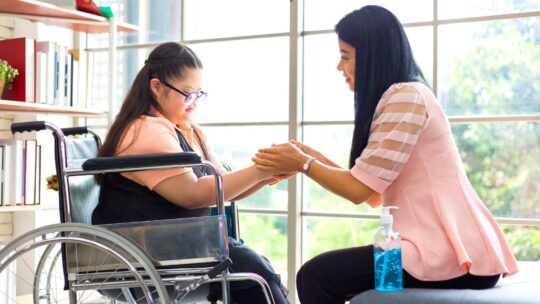When your children are diagnosed with autism spectrum disorders, you have lots of questions about their health and wellbeing. Thanks to the extensive research recently conducted in this area, there are many ways to support your children and ensure that they have the tools they need to thrive. Here are a few of the best ways to promote your children’s development.
Keep Track of Their Sensory Processing Status
Many (but not all) children with autism spectrum disorders have difficulty with sensory processing and integration. In other words, they have problems responding to exterior stimuli. Some children cannot stand loud noises, whereas others struggle with certain kinds of touch. You should never force your children into situations where they are uncomfortable with the sensory processing that they must perform. For example, if a child does not like hugs, do not force him or her to hug relatives at a family reunion. However, you should keep track of your children’s sensory processing status so that you know what stimuli are likely to overwhelm them.
One way to monitor your children’s levels of sensory processing is with the SPM-2. This tool helps you assess your children’s responses to certain stimuli with a standard, and it gives advice for how to calm your children down if they react negatively to their environments. The SPM-2 contains benchmarks and coping mechanisms for individuals of all ages, from infancy to adulthood, and is backed by the sensory integration theory put forth by Jean Ayres. If your children are about to go through a major life change or if you just want to better meet their needs, this tool is essential.
Maintain an Open Dialogue With Everyone Involved
For a long time, conditions such as autism spectrum disorders were considered taboo, and children with these disorders were hidden or sent away. Although people are more accepting of neurodiverse individuals today, many of the same prejudices against people with sensory processing disorders persist. As a result, it’s crucial that you maintain open communication about your children’s needs with everyone involved in their lives. Work with your children to explain their sensory processing triggers to your other family members, if appropriate, and provide updates if these triggers change. Avoid using emotionally charged language to explain the situation; simply give your family the information without blaming or belittling your children.
If you are sending your child to a special needs schools in Singapore, you need to make sure that you have an open line of communication with their teachers and counselors. Since the children are going to be spending a lot of time at the institution, it is imperative that you are aware of their progress levels. This will also help you understand a lot about subjects and areas where they are good at. If you know this, then you might be in a position to help them guide themselves better as far as career choices are concerned.
Open communication also means making sure that your children’s schools have the right support staff and accommodations for their learning differences. Some neurodiverse children function well in traditional school environments and do not need any accommodations. Others need extended time or solitary environments for tests, aides to assist them in completing their coursework, or special classes catered to their needs. Your children are entitled to these services at public schools, but private schools may struggle to find enough funding to offer them.
Awareness and communication are both key to supporting your children’s mental, emotional, and physical health. As you navigate the world of sensory processing disorders, don’t be afraid to reach out to an expert for help.
You can discuss autism and assessment questions with WPS assessment consultants. Learn more at WPS today.





























































